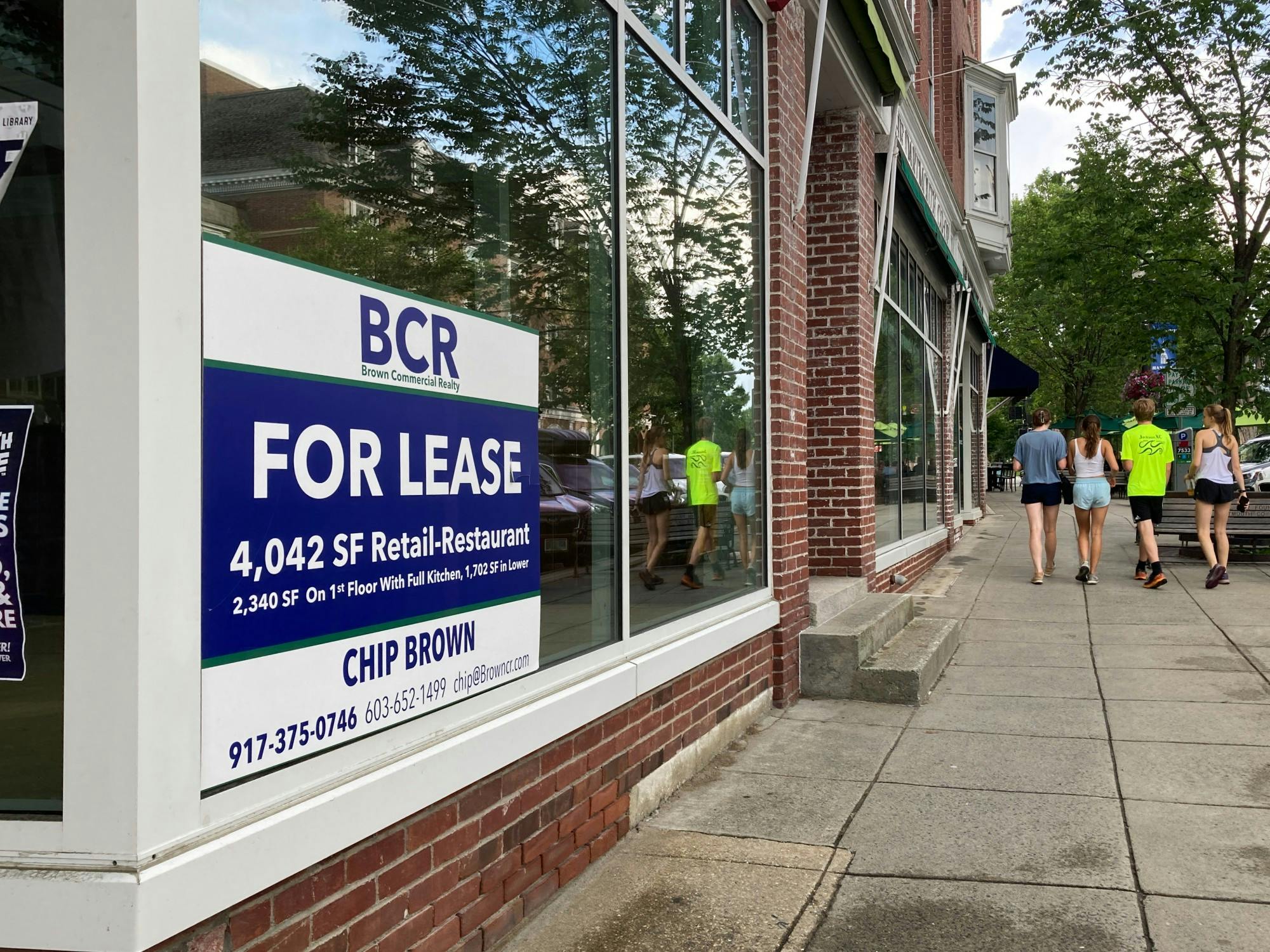Hanover businesses have faced varying degrees of difficulty adjusting to a post-pandemic environment, with one factor playing an outsized role: rent. While some already-strapped businesses are no longer able to stave off rising rent, others own their storefronts and have avoided financial hardship.
According to Hanover town manager Alex Torpey, affordability has been a recent challenge for the town’s businesses, noting that he has heard over the past month how tough it is to rent commercially. Bryan Smith, the owner of Records, Posters, and Memorabilia New Hampshire, said that his rent is slated to triple over the next few months — back to pre-pandemic levels.
To cover rising property costs, “landlords want to go back to pre-pandemic rents, but costs are going up and sales are not returning,” Smith said. When the College buys real estate, Smith said it takes those properties out of the tax base, which increases property taxes for landlords.
“We want one of the best public school systems in the country. We want quality of life. Our streets have no potholes, so they charge high property taxes,” Smith said. “...The prices that landlords get for rent around here are equivalent to major cities.”
During the pandemic in 2021, Smith said he was two days from having to shutter his store, but his landlords lowered the rent to allow rpmNH to stay. Without reduced rent, he said he is struggling to stay afloat.
Smith said that the store has been hit hard by a lack of employees, increasing shipping costs and reduced foot traffic — all of which have compounded with high rent to hurt rpmNH financially. He noted that costs of goods have increased 25% since January, with sales being down 20% in May and 30% in June.
Jarrett Berke Tu’17, the owner and CEO of Lou’s Restaurant, noted that he has not faced the same difficulties. When he took over the restaurant, he bought Lou’s real estate, one of six condos within a singular building. Compared to 2021, Berke said Lou’s revenues are up 25% and patron count is up 10%, largely due to increased outdoor seating.
“We, fortunately, are not subject to rent increases,” Berke said. “But … the rental market around Hanover just continues to increase, and, I think it’s increasing far above what inflation is causing.”
Duncan Carroll, the manager of Hanover Strings, also owns one of the six condos and has thus been insulated from the rental pressures.
“We’re the oldest shop in town and the owner of this building,” Carroll said. “And that’s super unique in Hanover. Every shop gets turned over every couple years in town … most businesses don’t have that luxury of just being here forever, because we started in [1974].”
Smith said he is unable to buy a storefront, as opposed to renting, noting that he does not “have a million dollars” nor the inclination to buy at age 62.
According to Torpey, the town is in the process of creating an economic development committee dedicated to the sole purpose of recruiting and retaining businesses, which includes soliciting feedback about how the town can best support its stores and restaurants. Torpey noted that he hopes to form a committee composed of many different stakeholders, from tenants to landlords.
Torpey added that Dartmouth “plays a huge role in downtown [Hanover].” Smith agreed, but noted that he has been frustrated by the College’s lack of concern for the town’s businesses. According to Smith, no one from the College notified him of the Class of 1995 and 1996 reunion this past weekend.
“Had I known, I would’ve had ’95 posters available out in the window,” Smith said. “And so we didn’t know until they actually started showing up. It would’ve been kind to inform the town … that there’s special things happening.”
According to Torpey, the town is planning to take a closer look at turnover, understanding the root cause of the issue to better address it.
“Our aim going forward is to have our finger on the pulse of who’s coming in and who’s coming out and why,” Torpey said. “For example that might mean having a database of all of the commercial property in town and who’s in it, how long they’ve been there and what features it has.”
Smith said he is planning to decide in the coming months whether he will continue to run rpmNH, saying that he has already stopped buying new tapestries and intends to stop purchasing records.
“I will reevaluate in October depending on what [the landlords] want to charge me,” Smith said.




